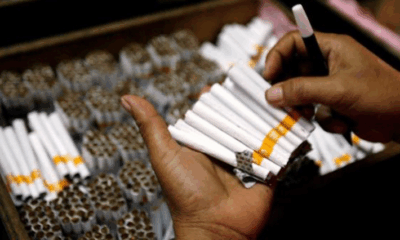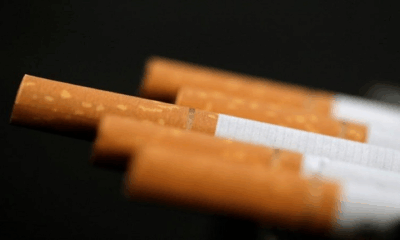News
100,000 Township Traders Push Back Against Tobacco Law: “You’re Criminalising Poverty”

“You’re Criminalising Poverty” Township Traders Threaten Unrest Over Tobacco Bill
Thousands of South Africa’s informal traders say a proposed tobacco law could wipe out their livelihoods and they’re ready to fight back.
The unseen economy speaks up
In a country where nearly half the population is either unemployed or scraping by in the informal sector, the latest parliamentary push to tighten tobacco laws has sparked outrage on the streets and in the spaza shops that keep them alive.
The South African Spaza and Tuck Shop Association (SASTA), which represents over 100,000 informal traders, says the government’s plan to ban the sale of single cigarettes could cripple thousands of micro-businesses that rely on tobacco to make a daily income.
“For many traders, a R2 cigarette is not just a product, it’s lunch money, school shoes, taxi fare,” said one Soweto trader. “Take that away, and you take away our dignity.”
SASTA’s warning isn’t vague. It’s a promise of resistance. The organisation has already cautioned that the law, if passed in its current form, could spark mass protests and coordinated economic disruption across the country.
Why single cigarettes matter
Selling “loose draws,” as they’re often called, is a mainstay of township life. In areas where poverty runs deep, buying a full pack is simply not an option for many smokers. So traders break up cartons and sell individual sticks a practice that, while frowned upon by health regulators, helps informal businesses survive in a cutthroat economy.
SASTA says the new law which proposes to ban single cigarette sales, regulate vaping, remove advertising, and enforce plain packaging, fails to consider the reality of South Africa’s economic structure.
“We support public health,” the association stated in its parliamentary submission. “But this bill doesn’t fight smoking, it fights survival.”
Banning legal trade, feeding illegal networks
While government insists the law will protect public health, traders argue it could have the opposite effect. With legal sales restricted, SASTA says more people will turn to the booming illicit cigarette market, which already controls up to 70% of national sales.
That market, made up of tax-dodging, unregulated suppliers, is worth an estimated R27 billion in lost revenue to the state annually.
“The law punishes people who are trying to make an honest living while rewarding smugglers,” said SASTA. “It’s not just bad economics, it’s a gift to the criminal underworld.”
Despite widespread knowledge of this issue, the association claims law enforcement and SARS have failed to crack down on illegal trade, choosing instead to tighten the screws on those operating above board.
“You want to arrest us for working”
Perhaps the most scathing part of SASTA’s response is its claim that the bill will “criminalise poverty.” Traders who continue to sell singles, often to customers who can afford nothing more, could face fines or arrest.
“Why are we being treated like criminals for trying to feed our families?” asked a tuck shop owner in Khayelitsha. “We’re not drug dealers. We’re not gangsters. We’re just poor.”
What SASTA wants instead
SASTA isn’t rejecting the bill in its entirety. It’s asking for two key concessions:
-
Allow the continued sale of single cigarettes, which serve as vital income for informal traders and affordable access for consumers.
-
Include informal trade representatives in the oversight and rollout of the legislation to ensure the informal economy isn’t left behind again.
It’s a call not just for policy inclusion, but for respect.
Social media and public sentiment
Reactions online have been mixed. While health activists applauded the bill’s tough stance on tobacco use, others questioned whether government is missing the point.
“Don’t come for the poor when you haven’t fixed the rich,” one X (formerly Twitter) user wrote.
Another added, “So now the only people allowed to sell cigarettes are criminals and big corporations? Great job.”
The bigger picture: A fight for economic dignity
This isn’t just about cigarettes. It’s about power and who gets to be part of South Africa’s future economy. Spaza shops and street vendors make up the last-mile distribution network for millions of low-income South Africans. Their trade may be informal, but their role is essential.
The proposed tobacco bill, SASTA argues, risks destabilising not only individual livelihoods but community structures that have stood the test of poverty, crime, and state neglect.
And now, with over 100,000 traders “organised and mobilised,” it’s clear: if government doesn’t listen, the streets will speak.
{Source: BusinessTech}
Follow Joburg ETC on Facebook, Twitter , TikTok and Instagram
For more News in Johannesburg, visit joburgetc.com



























